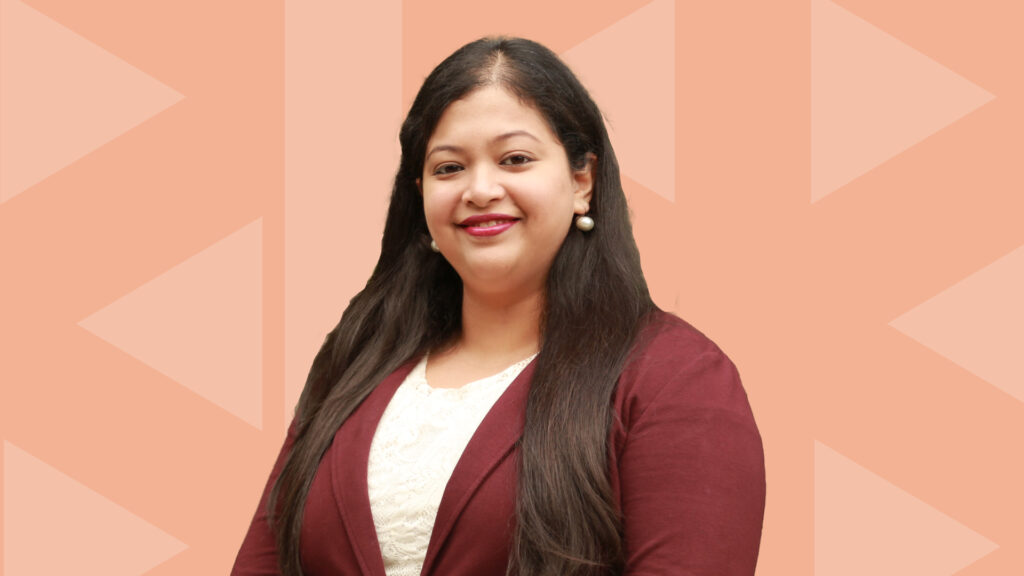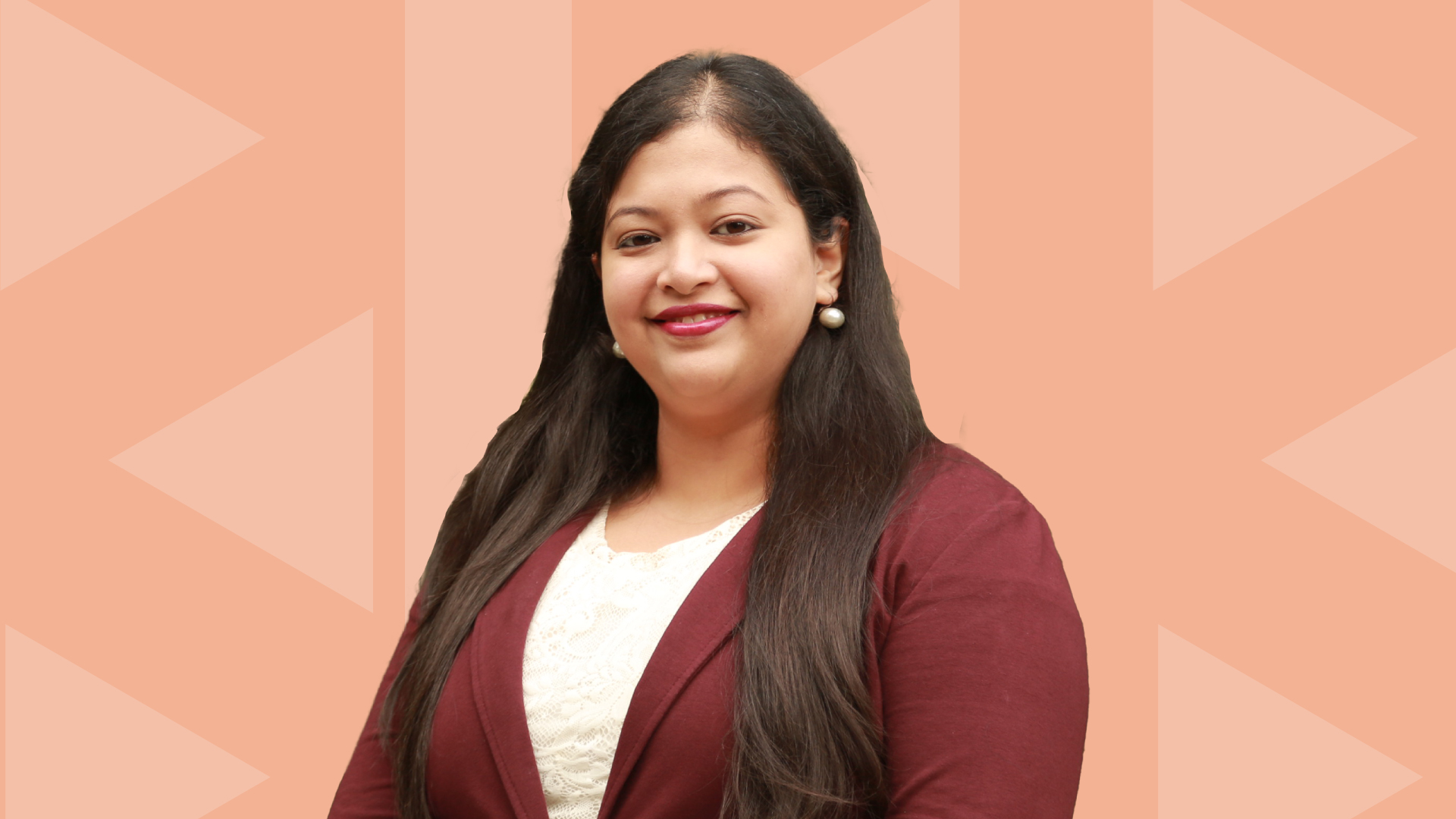
An education in AI intersects with computational thinking
“What to do after my PhD was a huge decision for me. Until SRI, my life had been mostly about computer science; others from my lab used the AI part of their studies to go on and conventionally apply AI in the industry. But, I really enjoyed working with students and teachers to apply AI in education and I knew I wanted to continue doing that. So, I started focusing more on the education research part of AI, and that’s what brought me to SRI.” — Dr. Satabdi Basu, Principal Education Researcher, SRI International
Dr. Satabdi Basu originally hailed from India and, after receiving a PhD focusing on artificial intelligence (AI) from Vanderbilt University, joined SRI in 2016 as an education researcher. Unlike many of her colleagues in the education division at SRI International, Dr. Basu’s PhD is in computer science (CS). At SRI, she uses her passion for supporting K-12 students and teachers to learn and teach CS and AI in a wide range of education-research and technology-enhanced curriculum development projects.
A true multi-disciplinarian
Dr. Basu is a true multi-disciplinarian who blends her academic background in AI with her love for education research in her current role at SRI. She explained, “during my PhD, I initially expected to work on more conventional AI projects, things like real-world constraint satisfaction problems, but my supervisor introduced me to a different track; education research, educational data mining and using AI to augment learning and teaching. I ended up taking a few courses at the Peabody School of Education (part of Vanderbilt University) to broaden my knowledge.”
Dr. Basu’s dissertation focused on supporting middle school students in integrating computational thinking with science learning via computational modeling and exploring how AI could support students’ synergistic learning of computational thinking and science. Students created their own computational models of how a rollercoaster and a fish tank ecosystem worked during their science class, exploring kinematics and ecology concepts. Dr. Basu outlined the basics of her approach, explaining, “we built an avatar that offered middle school students real-time support and strategy feedback during their computational modeling experience. We performed a controlled experiment: one group didn’t get the support, and the other group was offered full support. The group that received support demonstrated significantly higher learning gains and better learning behaviors.”
Cross-disciplinary research interests for the multi-disciplinarian
Dr. Basu works in the education division of SRI, but her deep understanding of CS and AI allows her to explore projects that marry the disciplines. Dr. Basu is passionate about students having the opportunity to learn computing skills, computational thinking and AI concepts. She explained how today’s increasingly digital world requires a new type of literacy: “computational thinking is slightly different from CS; it’s more about using problem solving skills. Even if a student does not grow up to be a computer scientist, having computational thinking skills will allow them to survive in this digital world and understand things in the news and in daily life.”
This kind of literacy can be integrated into other subject areas, including non-STEM subjects, and this type of cross-disciplinary thinking and learning is a hot topic among researchers worldwide. Dr. Basu also deeply cares about training K-12 teachers to better teach CS and computational thinking skills infused into other subject areas.
Current CS education projects
Dr. Basu is involved in several projects in SRI’s Education division and is the Principal Investigator for three large National Science Foundation funded projects.
One of the projects that Dr. Basu leads is known as SPICE (Science Projects Integrating Computing and Engineering) where she collaborates with Digital Promise, University of Virginia and Vanderbilt University. Dr. Basu spoke about the project, saying, “this is a project I really love, and it’s cool because it integrates three disciplines. It targets students in fifth and sixth grade, a young age before they typically have any engineering education. The project challenges students to solve a problem –a schoolyard that is flooding, and kids can’t go outside and play. The students then explore solutions to this problem, such as resurfacing the schoolyard with different types of surface materials. We add constraints such as cost of resurfacing and wheelchair accessibility of the schoolyard. Students build simple computational models of water runoff and use them to carry out experiments and find a solution for the flooded schoolyard challenge.”
Dr. Basu has recently won another NSF grant to carry out a controlled study on the affordances of different types of computational modeling activities in a STEM+CS context such as the one in SPICE. The project is a collaboration with Digital Promise and Vanderbilt University and aims to contribute to the theory of how students interact with and learn using different types of computational modeling activities and how teachers perceive and implement these activities. Dr. Basu describes, “we are not only interested in the final engineering designs students produce, but also in the processes that get students to their final designs.”
Another project led by Dr. Basu looks at ways to support middle school CS teachers to build their confidence in CS content, CS standards and CS teaching practices. Often those who teach CS are not computer scientists but are originally trained as math or science or ELA teachers. Dr. Basu is working on delivering professional learning resources and professional development sessions to help these teachers become proficient in CS content and pedagogy, which in turn should improve student learning.
CoolThink@JC is yet another project where Dr. Basu has been contributing to an outcomes study and an implementation study for a large computational thinking initiative in Hong Kong. The project explores ways that students in primary grades 4–6 can use digital creativity in everyday life and use technology for social good from an early age. As part of the project evaluation, Dr. Basu and her colleague Dr. Daisy Rutstein have developed a validated computational thinking concepts and practices assessment for upper elementary school students. They have recently published this work via a journal paper, “A principled approach to designing computational thinking concepts and practices assessments for upper elementary grades.”
Dr. Basu’s work is recognized internationally. She was a keynote speaker at an NSF-funded conference on Advancing Interdisciplinary Integration of Computational Thinking in Science and gave an invited talk at the 21CLHK conference.
CS and AI education futures for Dr. Basu
In addition to her CS Education projects, Dr. Basu discussed how excited she is about a project she is working on with researchers at North Carolina State University and University of Southern California. This project is about AI education, which she points out is different from AI augmented education. She elaborates, “AI education teaches students about AI concepts and practices, whereas what I did for my dissertation work, and I’m still interested in, is AI for education or AI that augments education.” This is a small project but has big potential. She explains that the team is “trying to build an interdisciplinary research community to address the challenge of creating a national K-12 AI education strategy by bringing together researchers in AI, education and learning sciences, as well as practitioners, district coordinators and people from the industry.” The research community will discuss critical topics such as broadening participation in AI education, teaching students about AI ethics and what is developmentally appropriate for students at different grade levels.
Overall, CS education, AI education and AI augmented education are some of Dr. Basu’s core interest areas. No matter the subject area or grade level, Dr. Basu sees the value of AI as a support structure for both teachers and students. She is currently looking for funding opportunities to explore this area more thoroughly.
“Even though I am principally a computer science education researcher, I get to work on a lot of exciting projects in other areas in education. It’s a lot of fun to work across topic and content areas that intersect with CS and AI education; it’s just cool working with students, teachers and SRI researchers with varied expertise. I’m excited to continue working on integration of CS with other subject areas, AI education, and AI augmented education.”



